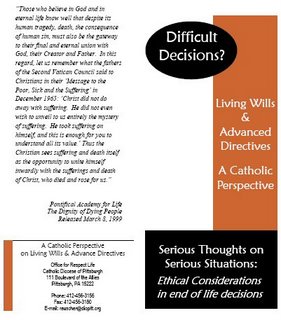Medicaid Fraud in Employment
 The Pennsylvania Attorney General's Office recently initiated a criminal prosecution through its Medicaid Fraud Control Section charging Medicaid fraud in an employment setting.
The Pennsylvania Attorney General's Office recently initiated a criminal prosecution through its Medicaid Fraud Control Section charging Medicaid fraud in an employment setting.
Medicaid fraud is a crime under Section 17 of the Medicare-Medicaid Anti-Fraud and Abuse Amendments of 1977 (Public Law 95-142), which authorized & funded states' Medicaid Fraud Control Units to investigate and prosecute provider fraud in the Medicaid program. The PA AG's Office formed its Medicaid Fraud Control Section (MFCS) in 1978.
The PA AG's Office issued a press release about its Medicaid fraud prosecution based on employment, entitled "Attorney General Corbett announces Medicaid Fraud and theft charges against York County woman accused of falsifying education credentials for mental health job":
The PA AG's website addresses its investigations into Medicaid fraud, as follows:Attorney General Tom Corbett today announced that agents from the Attorney General's Medicaid Fraud Control Section have filed criminal charges against a York County woman who was paid more than $35,000 for mental health services based on falsified information about her education and academic credentials. * * *
According to the criminal charges, MacBeth falsely claimed to have earned a Master's Degree when applying for work as a Behavioral Specialist Consultant and Mobile Therapist for two York County health care organizations. Both of those positions involve working with children who have mental health or behavioral problems and require a Master's Degree as a minimum qualification, according to the PA Department of Public Welfare. * * *
According to the criminal charges, the false educational background MacBeth provided to NHS and PCBHS caused those two agencies to pay MacBeth $35,547 for services she was not qualified to provide. Additionally, MacBeth's actions caused those two agencies to submit fraudulent claims to the PA Medicaid program totaling $49,269. Macbeth is charged with two counts of Medicaid fraud and two counts of theft by deception (creating a false impression). Each count is a third degree felony, carrying a maximum penalty of seven years in prison and a $15,000 fine.
The main focus of Medicaid Fraud investigations concerns providers which are usually physicians, dentists, mental health clinics, drug and alcohol clinics, hospitals and health maintenance organizations. Recipient fraud is generally left to local district attorneys to prosecute.The usual methods of Medicaid fraud are summarized in an article entitled "Investigating Health Care Fraud Within the Medicaid Program":
- Billing for Services Not Rendered
- Misrepresentation of Services
- False Cost Reports
- Kickbacks
- Unbundling Supplies and/or Services
- Medically Unnecessary Services and Substandard Care
- Drug Diversion
- Attorney General Corbett announces criminal charges against Monroe Co. chiropractor as part of illegal prescription drug probe in Luzerne Co.
- Attorney General Corbett announces $124 million multi-state settlement with pharmaceutical company; PA to receive more than $2 million
- AG Corbett, DA Lupas announce arrest of a Luzerne County doctor for illegally prescribing drugs
- AG Corbett announces arrest of Mercer County pharmacist on Medicaid Fraud charges
- AG Corbett, Erie County DA Foulk announce charges against Erie County doctor for illegally prescribing drugs
A list of the four offices (Harrisburg, Lemoyne, Norristown, & North Huntingdon) of the MCFS, with contact information, is found online here. The AG's Office offers a pamphlet about Medicaid fraud here.
As with any prosecutions brought by the PA AG's Office, we are reminded that "a person charged with a crime is presumed innocent until proven guilty."













